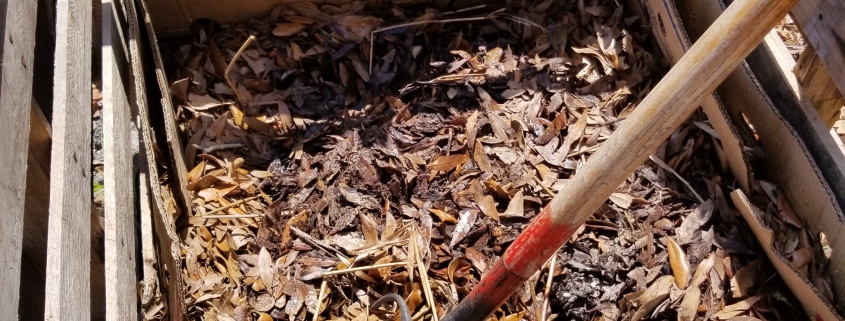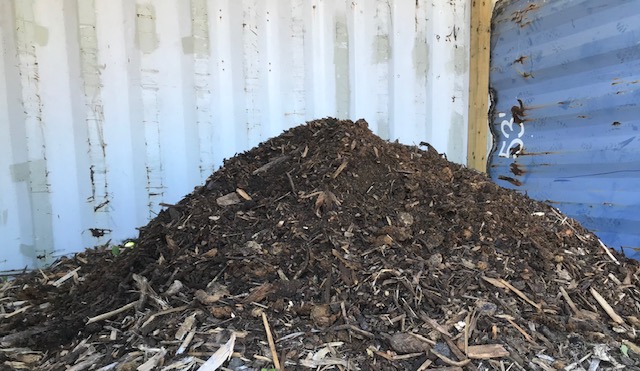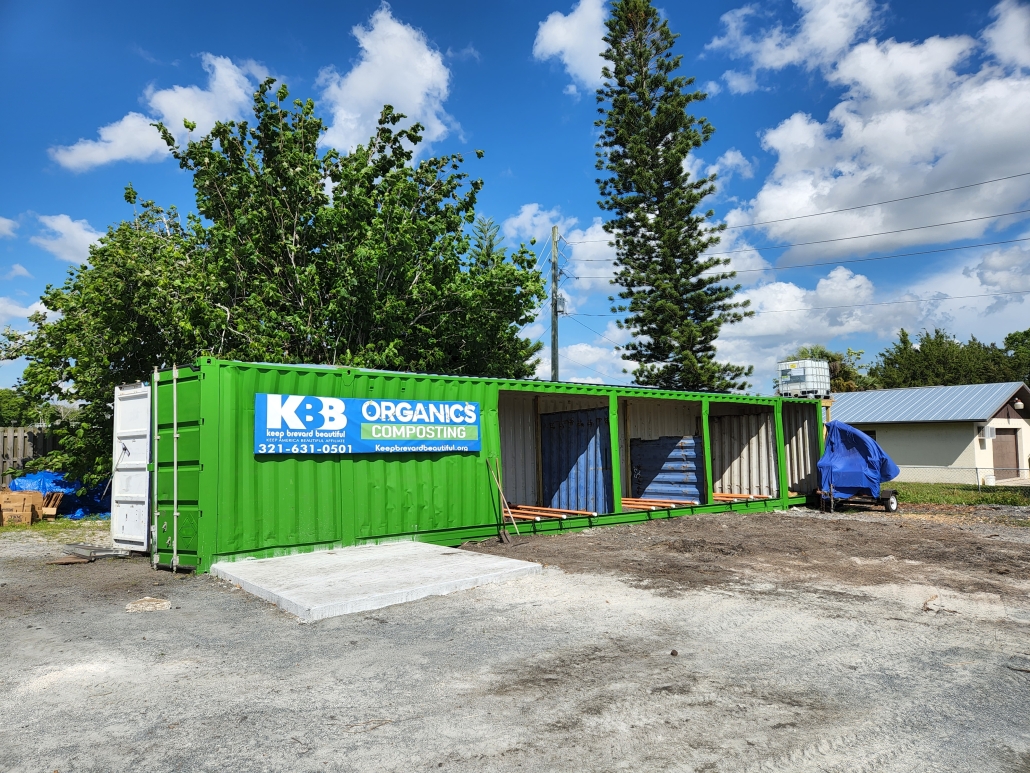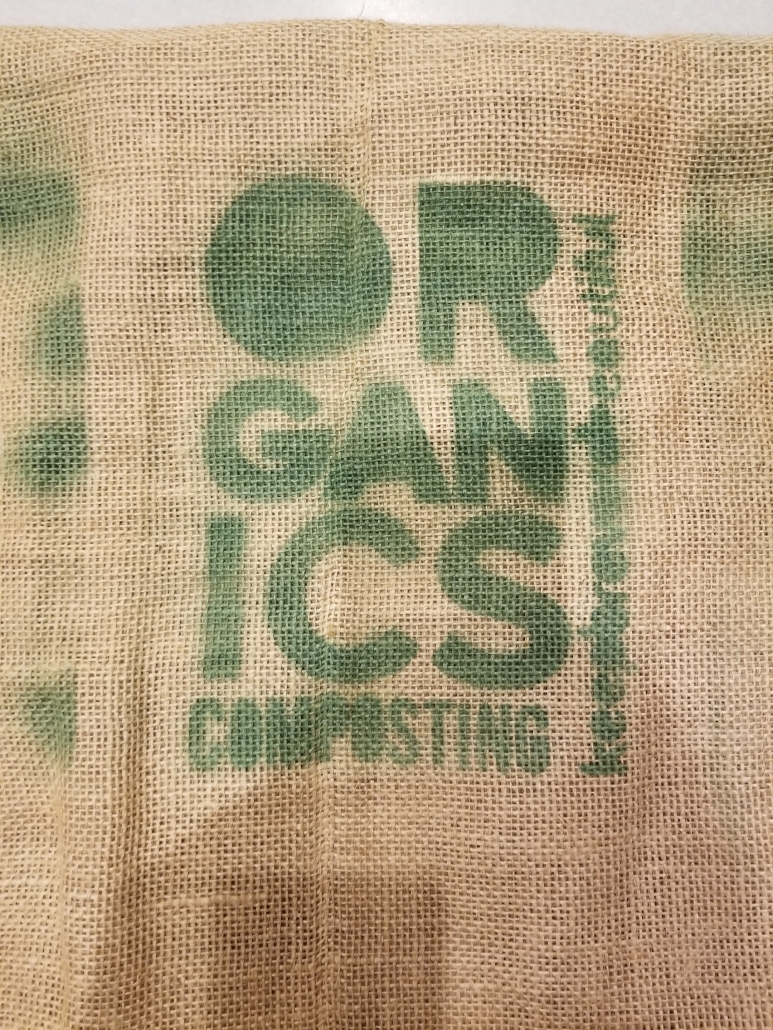
Compost is the result of millions of tiny microscopic organisms eating and converting organic material into a super nutritious food for plants.
Making compost is easy if you keep your microorganisms in mind.
The microorganism’s you want to make compost for you, need three easy to remember elements. It’s easy to remember because microbes need the same three things that humans need to survive; Food, water and oxygen.
Microbes love to eat our food scraps. In fact, microbes love to eat all organic material.

While you’re building your pile, go ahead and spray it down with a water hose.
You want to try and get your pile to be as wet as a wrung out sponge. You want to be careful not to put too much water in your pile or it can make it impossible for the microbes to breathe. When there is no oxygen in your pile, it means it has become anaerobic. Which means a different class of MO’s will move in and make your pile smell like rotting food. Grab a handful of your compost and squeeze it. You might notice that some water is pooling up between your fingers, but so long as it isn’t dripping, you’re good! This is the equivalent of about 50% moisture in your pile.
Lastly, as your new friends begin to break down the various foods you’ve given them, you might notice your pile is starting to look a little smaller. This is because the microbes are doing their job; they are breaking down and converting your favorite foods into plants favorite food.As this happens and your pile shrinks, it’s getting harder for the microbes to find air in the middle of your pile; because the broken down food is matting down and getting closer together.
Which brings me to the final element; air. In order to give your friends air to breathe, you have to do what’s called “turning the pile”. Though it’s more like stirring. Stirring your pile will separate all that matted down material and allow for fresh air to come in and keep your microbes happy.
When you turn your pile, you might notice a little steam coming from inside. Fear not. This is completely normal and don’t worry, it will not catch on fire.
This heat is caused by your microorganisms. They are working so hard to break down your pile that they are giving off body heat!

If your pile starts getting hot, you know you are doing everything right. Imagine everyone in your classroom just suddenly stood up and started doing jumping jacks. Eventually as everyone starts to produce more body heat, the temperature in the room would begin to rise.This is exactly what’s happening in your compost pile. Though as tiny as they are, there are so many microbes chowing down on your scraps, that their body heat together is heating up your pile. It can get over 100 degrees in there!

Keep giving them water and keep turning your pile and pretty soon you’ll notice that your pile is turning very dark and it’s probably difficult to recognize anything that you put in the pile in the first place. It should look a lot like black dirt.
Congratulations! You have successfully made compost.
Now what do you do with it? Well you can do lots of stuff with it. You can sprinkle some on your flowers to make them grow bigger and more vibrant. You can give it to your fruit and veggie plants and make them grow twice the size that they would have. It can even make your fruits and veggies taste better!
Fun facts:

- Compost happens even without humans. We are just speeding up the process.
- By composting, you are keeping organic matter out of the land fill.
- When organic material goes to the landfill, it gives off a really smelly gas called methane. Methane traps over 20 times the amount of heat as carbon dioxide.
- By composting, you’re actually decreasing greenhouse gases which will slow down global warming and save a lot of sea life that is vanishing due to the oceans overheating.
- You can compost anything that was once alive. ( plants, trees, fruits, veggies, even animals compost)
- Compost can help sandy soils retain moisture and thus decrease the amount of runoff into our lagoons.
- There are many ways to compost.


